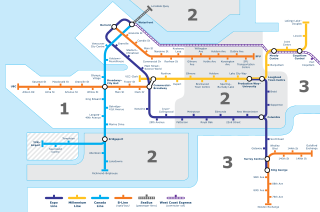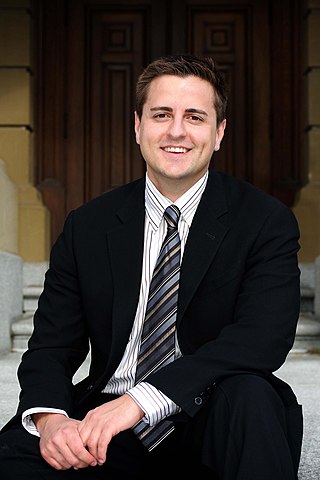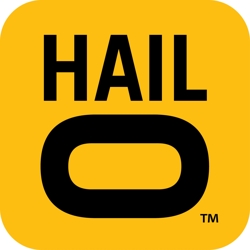
In New York City, taxicabs come in two varieties: yellow and green; they are widely recognizable symbols of the city. Taxis painted yellow are able to pick up passengers anywhere in the five boroughs. Those painted apple green, which began to appear in August 2013, are allowed to pick up passengers in Upper Manhattan, the Bronx, Brooklyn, Queens, and Staten Island. Both types have the same fare structure. Taxicabs are operated by private companies and licensed by the New York City Taxi and Limousine Commission (TLC). It also oversees over 40,000 other for-hire vehicles, including "black cars", commuter vans, and ambulettes.

Taxis of Singapore come in two main varieties. Traditional taxi companies offer flag down and call bookings and their drivers are hired employees of the company. Ridesharing companies allow bookings through a smartphone, allowing ease for passengers, these are mostly known as private hire vehicles (PHV). Their apps also allow the flexibility to work and pick up passengers with their own vehicle, be it owned or rented, provided the various requirements are met depending on the company.

Transportation in Vancouver, British Columbia, has many of the features of modern cities worldwide. Unlike many large metropolises, Vancouver has no freeways into or through the downtown area. A proposed freeway through the downtown was rejected in the 1960s by a coalition of citizens, community leaders and planners. This event "signalled the emergence of a new concept of the urban landscape" and has been a consistent element of the city's planning ever since.
Taxicabs within a country often share common properties, but there is a wide variation from country to country in the vehicles used, the circumstances under which they may be hired and the regulatory regime to which these are subject.
The taxicabs of the United States make up a mature system; most U.S. cities have a licensing scheme which restricts the number of taxicabs allowed. As of 2012 the total number of taxi cab drivers in the United States is 233,900; the average annual salary of a taxi cab driver is $22,820 and the expected percent job increase over the next 10 years is 16%.

Taxis in Australia are highly regulated by each Australian state and territory, with each state and territory having its own history and structure. In December 2014, there were 21,344 taxis in Australia. Taxis in Australia are required to be licensed and are typically required to operate and charge on a fitted taximeter. Taxi fare rates are set by State or Territory governments. A vehicle without a meter is generally not considered to be a taxi, and may be described, for example, as a hire car, limousine, carpool, etc. Most taxis today are fueled by liquid petroleum gas. A2B Australia owns and operates the Cabcharge payment system, which covers 98% of taxis in Australia, and operates one of Australia's largest taxi networks.

The New York City Taxi and Limousine Commission is an agency of the New York City government that licenses and regulates the medallion taxis and for-hire vehicle industries, including app-based companies such as Uber and Lyft. The TLC's regulatory landscape includes medallion (yellow) taxicabs, green or Boro taxicabs, black cars, community-based livery cars, commuter vans, paratransit vehicles (ambulettes), and some luxury limousines.
Illegal taxicabs, sometimes known as pirate taxis, gypsy cabs, or jitney cabs, are taxicabs and other for-hire vehicles that are not duly licensed or permitted by the jurisdiction in which they operate. Most major cities worldwide require taxicabs to be licensed, safety-inspected, insured as for-hire vehicles and use taximeters and there may also be requirements that the taxi driver be registered or accredited. However, many unlicensed cabs are in operation. Illegal cabs may be marked taxi vehicles, and others are personal vehicles used by an individual to offer unauthorized taxi-like services. Illegal cabs are prevalent in cities with medallion systems, which restrict the number of legal cabs in operation. Since their introduction in 2009, vehicles affiliated with the transportation network company Uber have been classified as illegal taxicabs in some jurisdictions.

A taxi, also known as a taxicab or simply a cab, is a type of vehicle for hire with a driver, used by a single passenger or small group of passengers, often for a non-shared ride. A taxicab conveys passengers between locations of their choice. This differs from public transport where the pick-up and drop-off locations are decided by the service provider, not by the customers, although demand responsive transport and share taxis provide a hybrid bus/taxi mode.
Taxicabs and other vehicles-for-hire in Canada are regulated by local municipalities and provinces, and are owned & operated by private companies and individuals. Unlicensed cabs in some cities are referred to as bandit taxis/cabs.

Shayne Saskiw is a Canadian politician who was elected to the Legislative Assembly of Alberta representing the electoral district of Lac La Biche-St. Paul-Two Hills in the 2012 provincial election. Saskiw was the Justice and Solicitor General Critic and Deputy House Leader for the Wildrose Official Opposition, from 2012 to 2015. He is currently the co-founder and owner of TappCar, a vehicle for hire company.

Hailo was a British technology platform that matched taxi drivers and passengers through its mobile phone application. Founded in London in 2011, the Hailo taxi service was available in 16 cities.

Ola Cabs is an Indian multinational ridesharing company, headquartered in Bangalore. It also operates in other business verticals including financial services and cloud kitchens.
Many communities, governments, and organizations have established rules and regulations that specifically govern ridesharing companies. In some jurisdictions, for-profit ridesharing operations are completely illegal. Regulations can include requirements for driver background checks, fares, the number of drivers, and licensing.

Grab Holdings Inc. is a multinational technology company headquartered in One-North, Singapore. It is the developer of a super-app for ride-hailing, food delivery and digital payments services on mobile devices that operates in Singapore, Malaysia, Cambodia, Indonesia, Myanmar, the Philippines, Thailand and Vietnam.
A robotaxi, also known as robo-taxi, self-driving taxi or driverless taxi, is an autonomous car operated for a ridesharing company.
asterRIDE is a referral company that operates and markets transportation services on behalf of limousine and taxi operators across the cities where they operate. AsterRIDE markets their web platform and mobile app asterRIDE, which connects passengers with taxi drivers. As of June, 2015, asterRIDE was available in ten U.S. cities and growing: Chicago, Everett, Fort Lauderdale, Los Angeles, Miami, Naples, Orlando, Phoenix, San Diego, San Francisco, Seattle, and West Palm Beach. According to a release on their website, Las Vegas, New York City, Houston, and Philadelphia were to be added.

Didi Chuxing Technology Co., formerly named Didi Dache (嘀嘀打车) and Didi Kuaidi, is a Chinese vehicle for hire company headquartered in Beijing with over 550 million users and tens of millions of drivers. The company provides app-based transportation services, including taxi hailing, private car hailing, social ride-sharing, and bike sharing; on-demand delivery services; and automobile services, including sales, leasing, financing, maintenance, fleet operation, electric vehicle charging, and co-development of vehicles with automakers. The company is a subsidiary of Xiaoju Kuaizhi Inc.

Yandex Taxi is an international company operating taxi hailing and food delivery services across Russia, the CIS, Eastern Europe, Africa, and the Middle East. It is owned by Russian tech company Yandex. The company is among the world's leading developers of self-driving technology.
Careem is a Dubai-based super app with operations in over 100 cities, covering 12 countries across the Middle East, Africa, and South Asia regions. The company, which was valued at over US$2 billion in 2018, became a wholly-owned subsidiary of Uber after being acquired for $3.1 billion in January 2020. Careem expanded into the food delivery business with Careem Now in November 2018 and launched a digital payment platform, Careem Pay in April 2022. Careem's Super App business was divested by Uber in April 2023 to become a private company again, with e& taking a 50.03% stake, while Uber retains Careem's ride-hailing business.












